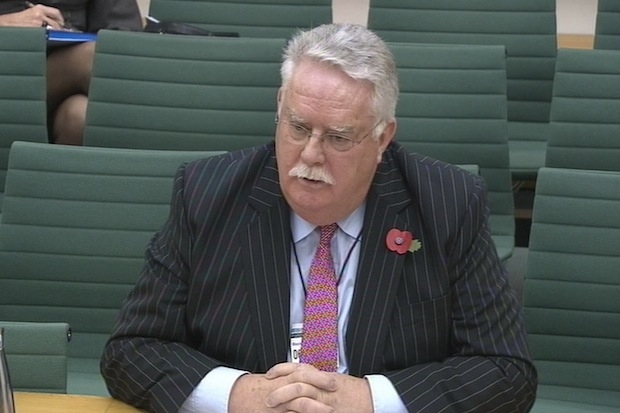There has naturally been plenty of unfavourable comment on how the Revd Paul Flowers, the ‘crystal Methodist’, was allowed by the Financial Services Authority to become chairman of the Co-op Bank. But the story does not reflect very well on the media either. If you look at Robert Peston’s BBC blog on the subject, for instance, there is a lot of ‘I am told’ and ‘according to the Manchester Evening News’. Is there no one in the BBC’s enormous staff who could have done a bit of work years ago on the Revd Mr Flowers? Isn’t it even more extraordinary that the media did not pick up Mr Flowers’s ignorant testimony earlier this month to the Treasury select committee until it was drawn to their attention on Sunday after he was exposed by the Mail on Sunday for buying illegal drugs? It seems truer than ever that the only way to ensure no one notices you is to say something publicly within the Palace of Westminster. Like Falkirk and Grangemouth (see last week’s Notes), this is a story about the inner workings of the Labour movement. It is grimy in its details. It may even require leaving London and going somewhere in the north to discover the facts. I suppose that is too much to ask. But if it had been a story about Tory corruption of a bank, I feel Mr Peston and co would have been in more of a hurry to find out about it.
As the Warsaw Climate Change Conference meets, it is becoming apparent that bolder, freer countries are undermining the principles which green visionaries wish to inflict upon the world. Japan is allowing itself more carbon emissions, pleading the effects of Fukushima. Canada and the new government in Australia are ceasing to make more than perfunctory obeisance to the god of global warming.








Comments
Join the debate for just £1 a month
Be part of the conversation with other Spectator readers by getting your first three months for £3.
UNLOCK ACCESS Just £1 a monthAlready a subscriber? Log in